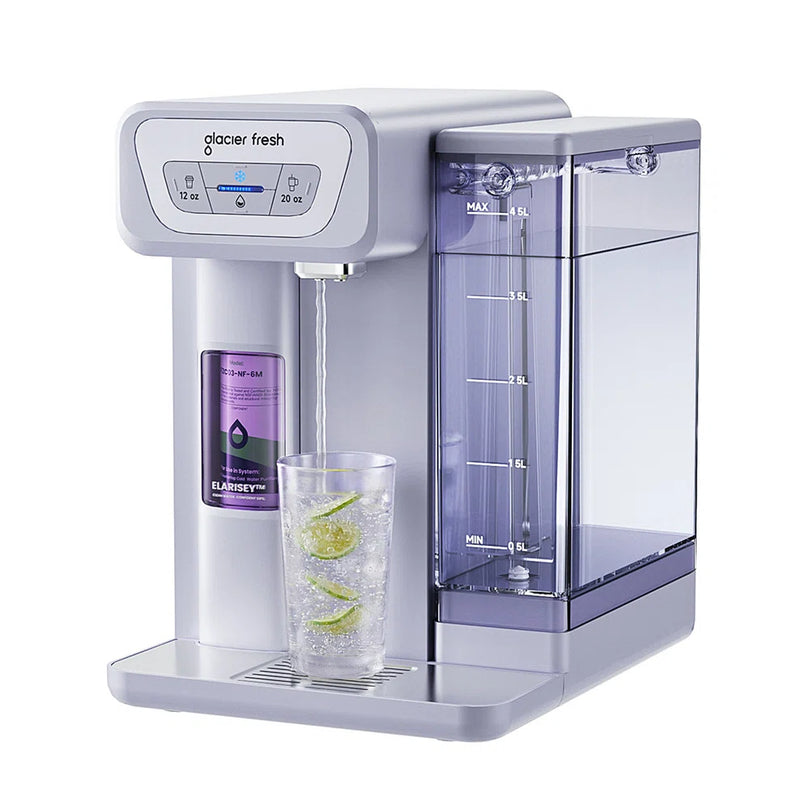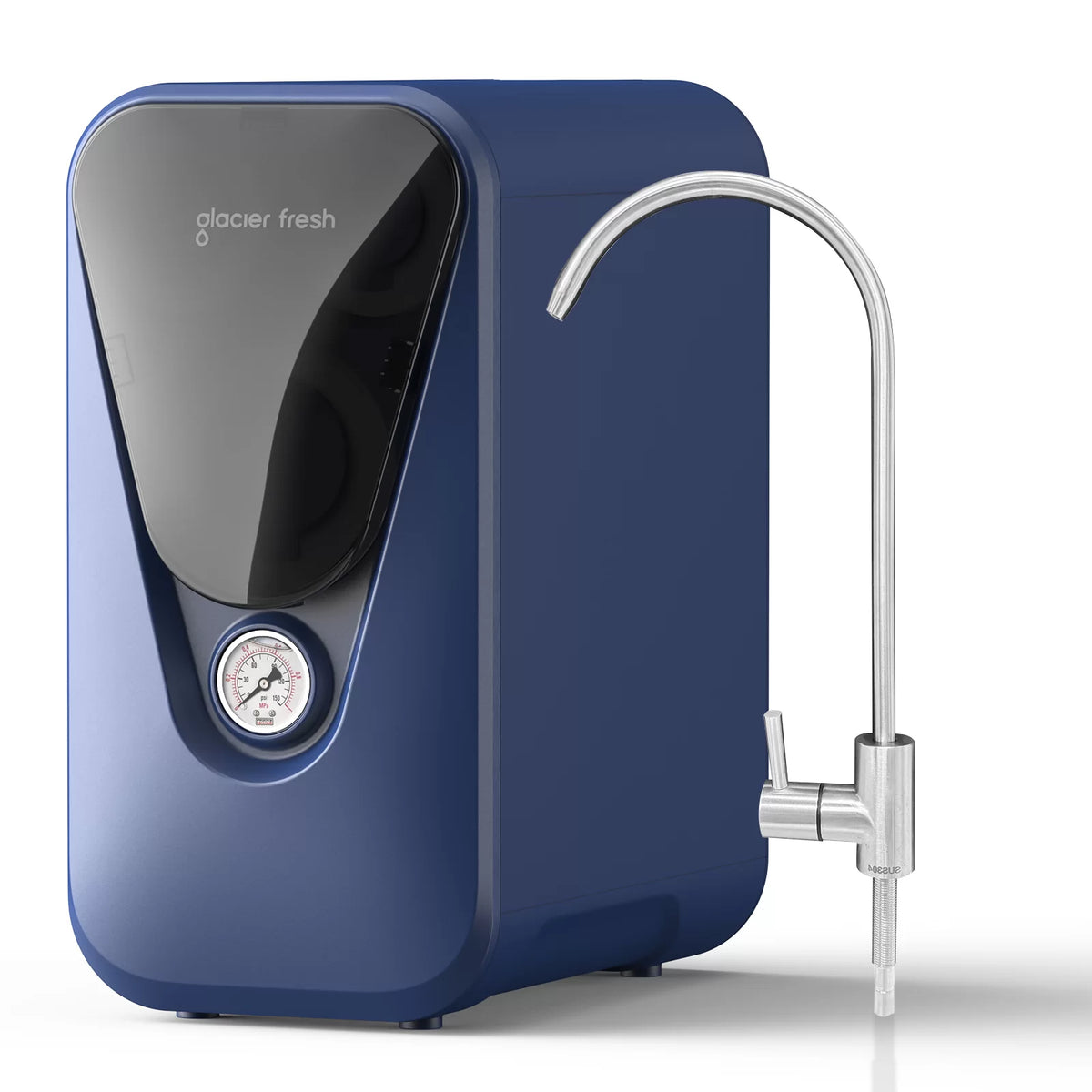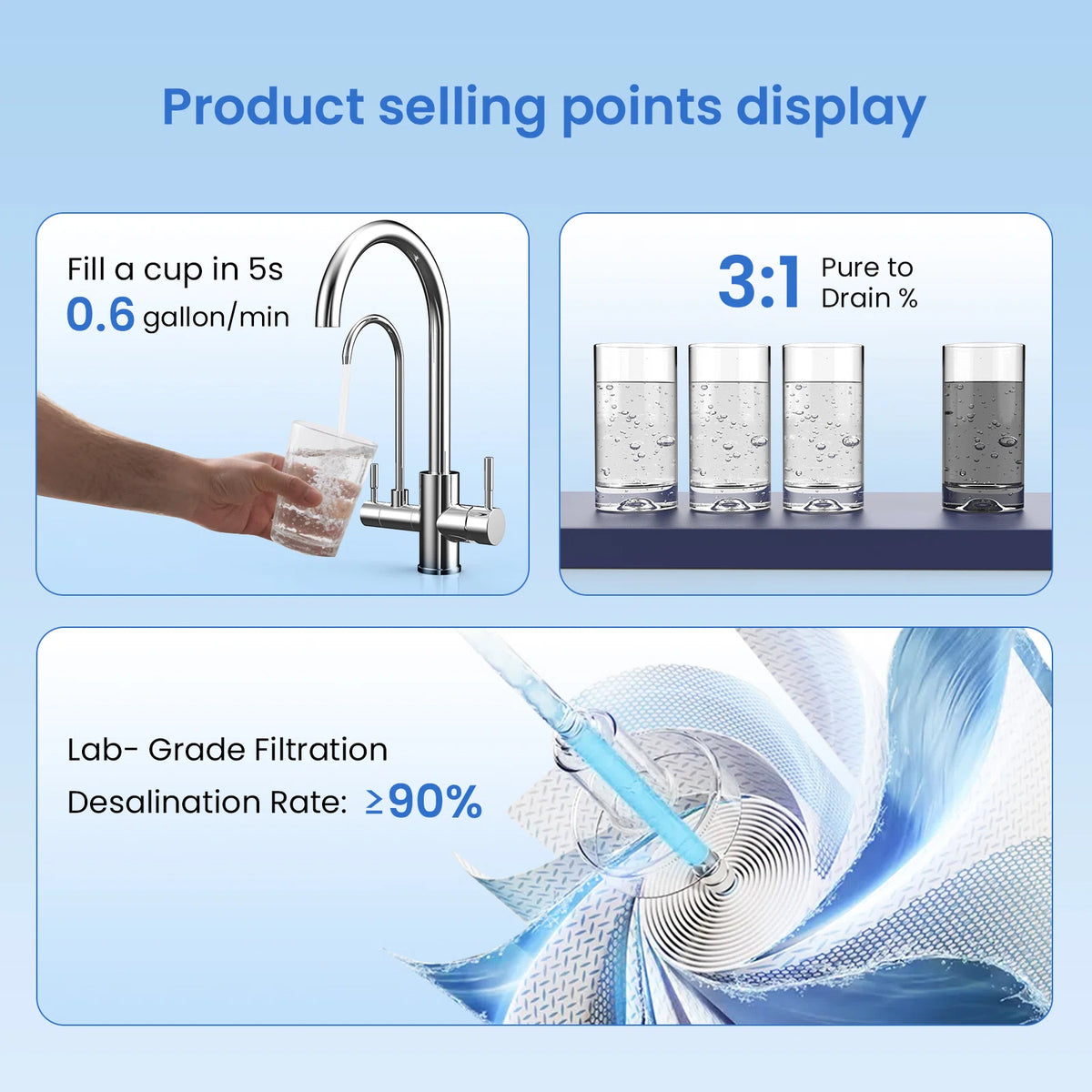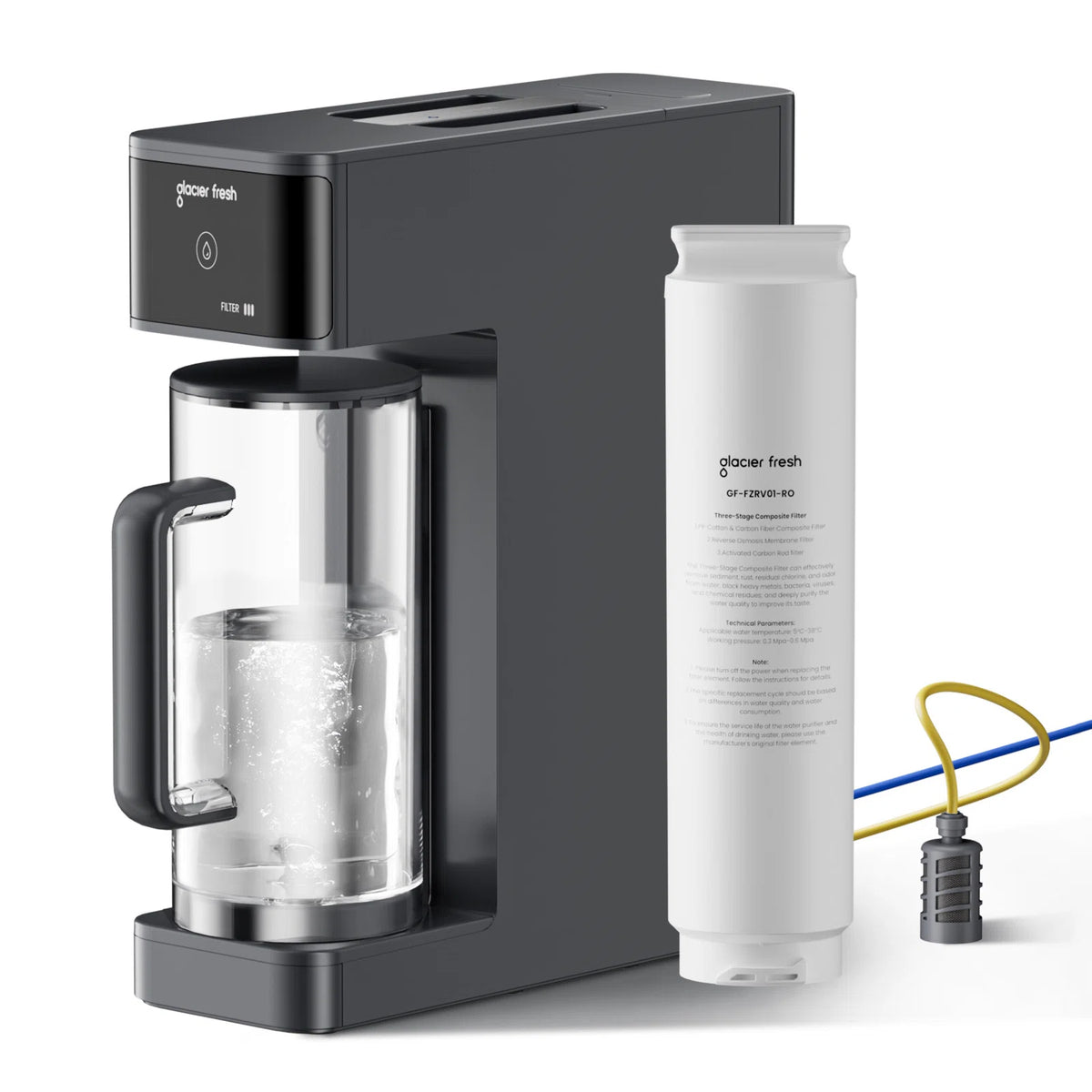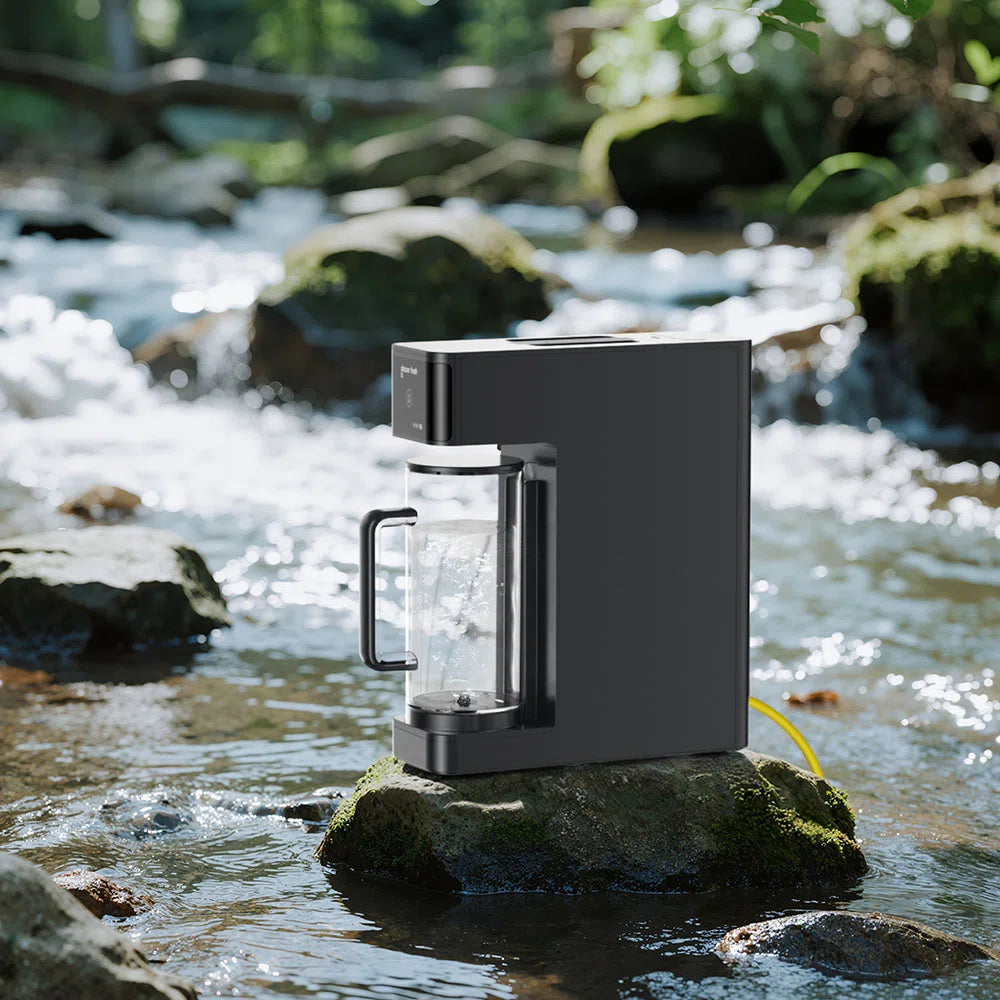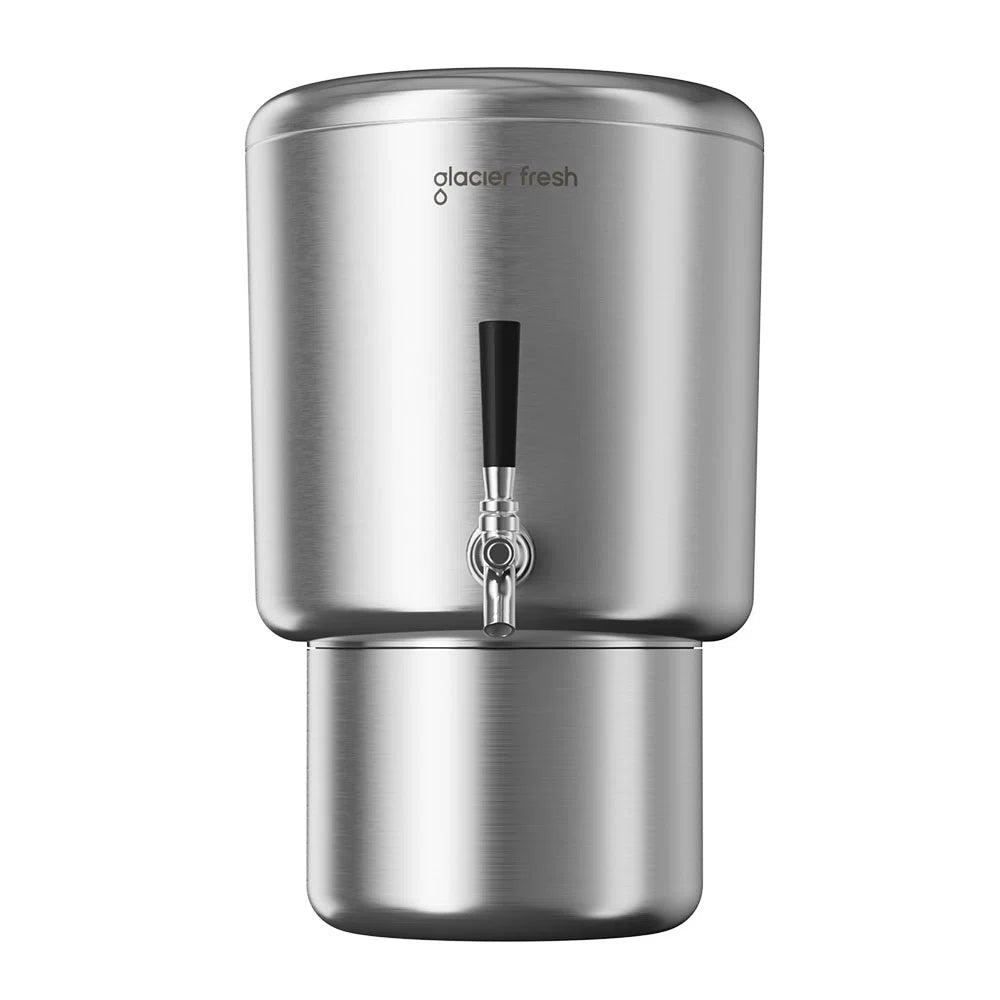Table of Contents:
The impact of water filtration on environmental sustainability
Ethical considerations in soda production and marketing
Social responsibility in the water filtration industry
Health and safety concerns in soda manufacturing
The role of corporate ethics in water filtration and soda production
The mission of Glacier Fresh
FAQs
Conclusion
Do you ever consider the ethical implications of the water you drink and the soda you enjoy? This article delves into the ethical dimensions of water filtration and soda production. We explore how water filtration impacts environmental sustainability and discuss the ethical considerations surrounding soda production and marketing. We also examine social responsibility in the water filtration industry and the health and safety concerns in soda manufacturing. Join us as we explore the role of corporate ethics in these essential industries.
The impact of water filtration on environmental sustainability

It would help if you considered the impact of water filtration on environmental sustainability when choosing a water filtration system for your home.
Water scarcity and pollution are significant global challenges that require our attention. By investing in an efficient gravity water filter system, you can contribute to water conservation efforts and help reduce the strain on our water resources.
Water filtration plays a crucial role in water treatment and management. It removes impurities and contaminants, ensuring your water is safe and clean. This process protects your health and reduces the need for excessive water treatment measures. Choosing an eco-friendly water filtration system can minimize the use of chemicals and energy, thus reducing your carbon footprint.
Furthermore, water filtration systems can help in the conservation of water. Traditional water treatment methods often require large amounts of water to operate effectively. In contrast, modern filtration systems are designed to be more efficient, reducing water waste. Using a system that prioritizes water conservation, you can contribute to preserving this precious resource for future generations.
Ethical considerations in soda production and marketing

When considering the ethics of soda manufacturing and advertising, examining the impact on consumers' health is important. Here are four critical ethical considerations in soda production and marketing:
1. Ethical advertising in soda marketing: Companies should be transparent and honest in their advertising, providing accurate information about their products' nutritional content and potential health risks.
2. Environmental impact of soda packaging: Soda companies should minimize their use of single-use plastics and other non-recyclable materials. They should also promote recycling and invest in sustainable packaging alternatives.
3. Fair trade practices in soda production: Soda companies must ensure fair wages, safe working conditions, and reasonable hours for their workers. They should also support local communities and responsibly source raw materials.
4. Ethical sourcing of ingredients for soda production: Soda companies should prioritize sourcing ingredients from suppliers who adhere to ethical practices, such as sustainable farming methods, fair trade agreements, and the absence of child labor.
5. Treatment of workers in soda manufacturing facilities: Companies should prioritize the well-being and rights of their workers, ensuring fair wages, safe working conditions, and opportunities for professional growth and development.
Social responsibility in the water filtration industry
If you're concerned about the social responsibility of the water filtration industry, it's essential to examine the impact on access to clean drinking water in disadvantaged communities.
Fairtrade practices
Fair trade practices in water filtration ensure equitable and just production and distribution processes. By promoting fair wages and working conditions, fair trade practices contribute to the overall well-being of workers in the water filtration industry.
Community engagement

Community engagement in water filtration initiatives is crucial for addressing the specific needs of marginalized communities. By involving community members in decision-making, their voices and concerns are heard, leading to more effective and sustainable solutions.
Transparency
Transparency in water filtration processes is necessary to build trust with consumers. Providing clear and accurate information about the filtration techniques and the sources and quality of the water being filtered, allows consumers to make informed choices.
Access to clean water
Access to clean water in marginalized communities is a fundamental human right that should be prioritized in the water filtration industry. By focusing on providing affordable and accessible filtration options to these communities, the industry can improve their residents' overall health and well-being.
Human rights protection
Lastly, human rights considerations in water filtration involve ensuring that the industry respects and upholds the human rights of all individuals interested in the production and distribution processes. This includes preventing exploitation or discrimination and promoting a safe and inclusive working environment.
Health and safety concerns in soda manufacturing

Ensuring health and safety standards in soda manufacturing is crucial for protecting workers and consumers alike. Here are four key areas that need to be addressed to maintain worker rights, product quality,
1. Worker rights: It's essential to prioritize the well-being of soda manufacturing workers. This includes providing a safe working environment, proper training, and fair wages. Protecting workers' rights is morally right and leads to increased productivity and employee satisfaction.
2. Product quality: Maintaining high-quality standards is paramount in soda manufacturing. Regular quality control checks should be conducted to ensure that the final product meets all safety and taste requirements. This guarantees that consumers are getting a safe and satisfactory beverage.
3. Ingredient sourcing: To produce a safe and healthy soda, it's crucial to source ingredients carefully. This involves selecting reputable suppliers who adhere to ethical and sustainable practices. Additionally, monitoring the quality and origin of ingredients helps prevent contamination and ensures the overall safety of the final product.
4. Waste management: Waste management is essential in soda manufacturing to minimize environmental impact. Implementing recycling programs, reducing packaging waste, and responsibly disposing of hazardous materials are necessary to ensure sustainable production practices.
The role of corporate ethics in water filtration and soda production
To make sure your company operates with integrity, it is important to consider the impact of corporate ethics on water filtration and the production of soda.
Corporate transparency is critical in maintaining trust with your consumers. By being open and honest about your manufacturing processes, you can ensure that your water filtration methods are sustainable and environmentally friendly. Engaging with the community is another important aspect of corporate ethics. You can address local stakeholders' concerns and create a positive relationship with the district by involving local stakeholders in decision-making processes.
Labor rights should also be a priority in your company's ethical framework. Ensuring fair wages and safe working conditions for your employees is crucial. You can create a healthy and productive work environment by treating your workers with respect and dignity. Waste management is another important consideration in the ethical production of soda. Proper waste disposal methods and recycling initiatives can minimize the environmental impact of your operations. Lastly, product quality should never be compromised. Upholding high standards and conducting regular quality checks will ensure customers receive a safe and reliable product.
The mission of Glacier Fresh

At Glacier Fresh, our mission is simple – to provide families worldwide access to clean, healthy, high-quality water directly from their refrigerators. we`ve dedicated to making it accessible for everyone to enjoy fresh, healthy water. Since then, we’ve accumulated a deep, multilayered understanding of water purification and the technology required to create clean water. We’ve designed exceptional technology that removes harmful heavy metals, pollutants, odor, and chlorine from drinking water and preserves healthy minerals, revolutionizing the industry by offering safe, healthy drinking water. Tested and Certified to NSF/ANSI Standard 42, we are becoming the market's most trusted and responsible manufacturer.
FAQs
How can consumer behavior influence the ethical practices of soda production and marketing?
Your consumer choices greatly impact the ethical practices of soda production and marketing. By supporting companies that prioritize sustainability measures and corporate responsibility, you can encourage positive change in the industry.
How do corporate ethics impact the sourcing and production methods of water filtration systems and soda companies?
Corporate responsibility drives ethical sourcing and production methods. Companies must consider the environmental impact of their water filtration systems and soda production. Consumer influence plays a vital role in shaping these decisions.
What are the social and economic implications of water filtration systems in developing countries?
You can understand the social and economic implications of water filtration systems in developing countries by considering economic empowerment, clean water access, technology innovation, social inequality, and sustainable development.
Conclusion
In conclusion, you have explored the ethical dimensions of water filtration and soda production. You have gained a comprehensive understanding of these industries by examining the impact on environmental sustainability, ethical considerations, social responsibility, health and safety concerns, and the role of corporate ethics. We must consider the ethical implications of our choices and actions to promote a sustainable and responsible future. By making informed decisions and supporting ethical practices, we can contribute to a better world for all.







